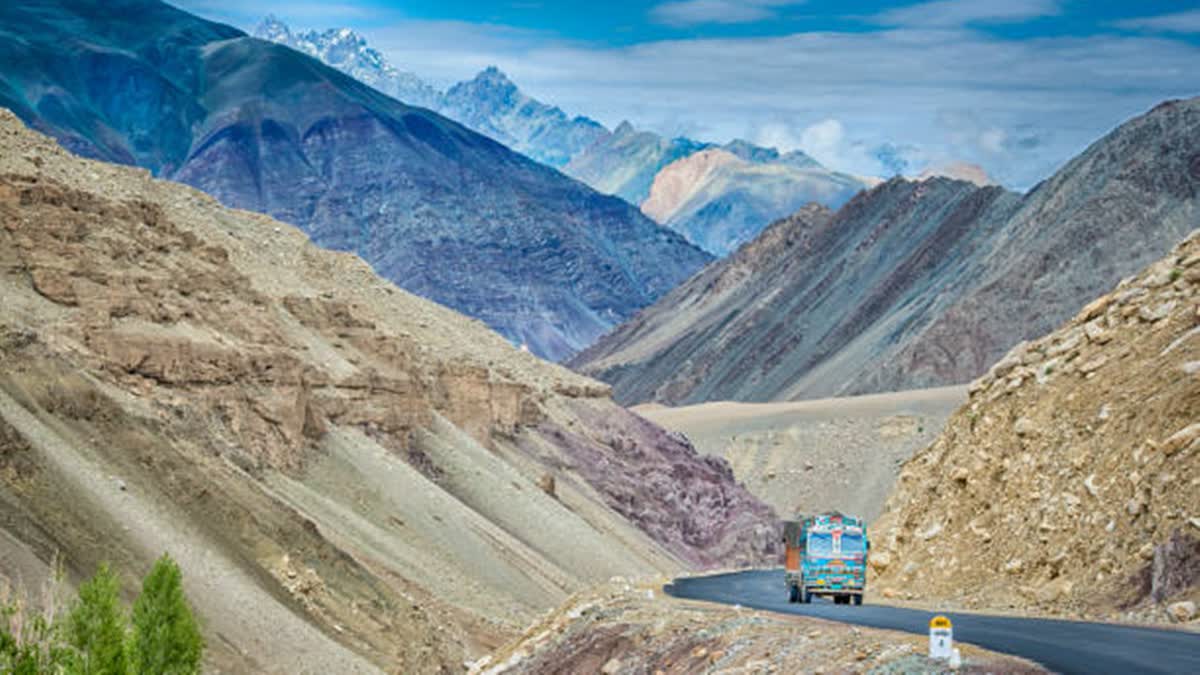Srinagar (Jammu and Kashmir):The Apex Body Leh and Kargil Democratic Alliance, an amalgam of socio-religious organisations in Ladakh union territory have raised strong objections to the recently notified Ladakh Industrial Land Allotment Policy-2023 by the UT administration saying they were not even consulted before framing the draft policy.
In the draft Ladakh Industrial Land Allotment Policy-2023, which is the first of its kind since the separation of of Ladakh from erstwhile Jammu and Kashmir state, the Lieutenant Governor Brig (Dr) B D Mishra (Retd)-led administration has allowed outside entrepreneurs to set up industrial units in the manufacturing sector.
The draft policy has been put in public domain for feedback. The Leh Apex Body and the Kargil Democratic Alliance have sharply reacted to the Ladakh Industrial Land Allotment Policy-2023 saying the policy has been framed without taking the stakeholders on board. Local stakeholderes said that the two elected Hill Development Councils, Leh and Kargil have been sidelined while formulating the draft industrial policy.
Stakeholders believe the new industrial policy will expose the area to large companies, endangering both the people and the land. The proposal was discussed during a meeting on Sunday, according to a statement released by Apex Body Leh. The group is a coalition of social, religious, and political groups that was established to support the 6th Schedule for the Union Territory following the abrogation of Article 370.
Also read:Post LAHDC polls, no signs of Assembly elections in J&K: Here is where electorate of both these UTs stand
Local representatives have also voiced their worries over the Ladakh Industrial Land Allotment Policy - 2023 on social media. Mukhtar Hussain, a youth Congress party leader while reacting to the draft policy, said, “It's important for industrial policies to consider the interests and well-being of Ladakh. Union Territory govt should have to involve all relevant stakeholders in the decision-making process to ensure a more balanced and equitable approach to industrial development in Ladakh."
Echoing similar concerns, a prominent politician from Ladakh Sajjad Kargili said the New Industrial Policy “poses a significant risk to the delicate environment of Ladakh and threatens the indigenous cultural identity of the region." Kargili, a member of the Kargil Democratic Alliance (KDA), further said: "The introduction of this draft without the consent of the people of Ladakh is undemocratic and deeply concerning. Moreover, Undermining the opinions of the Ladakh Autonomous Hill Development Councils (LAHDCs) indicates a continued disempowerment of the people of Ladakh."
While urging both the councils to unite against the policy, Kargili said, "These new regulations directly undermine the authority and role of the Ladakh Autonomous Hill Development Councils, constituting a severe attack on their institution. It is imperative for both the Kargil and Leh councils to unite and stand against this policy, which is clearly against the interests of the local population."
Prior to the Ladakh Union Territory's formation, region adhered to the industrial policy of the erstwhile state of Jammu and Kashmir.
